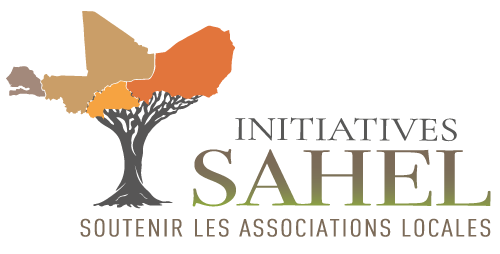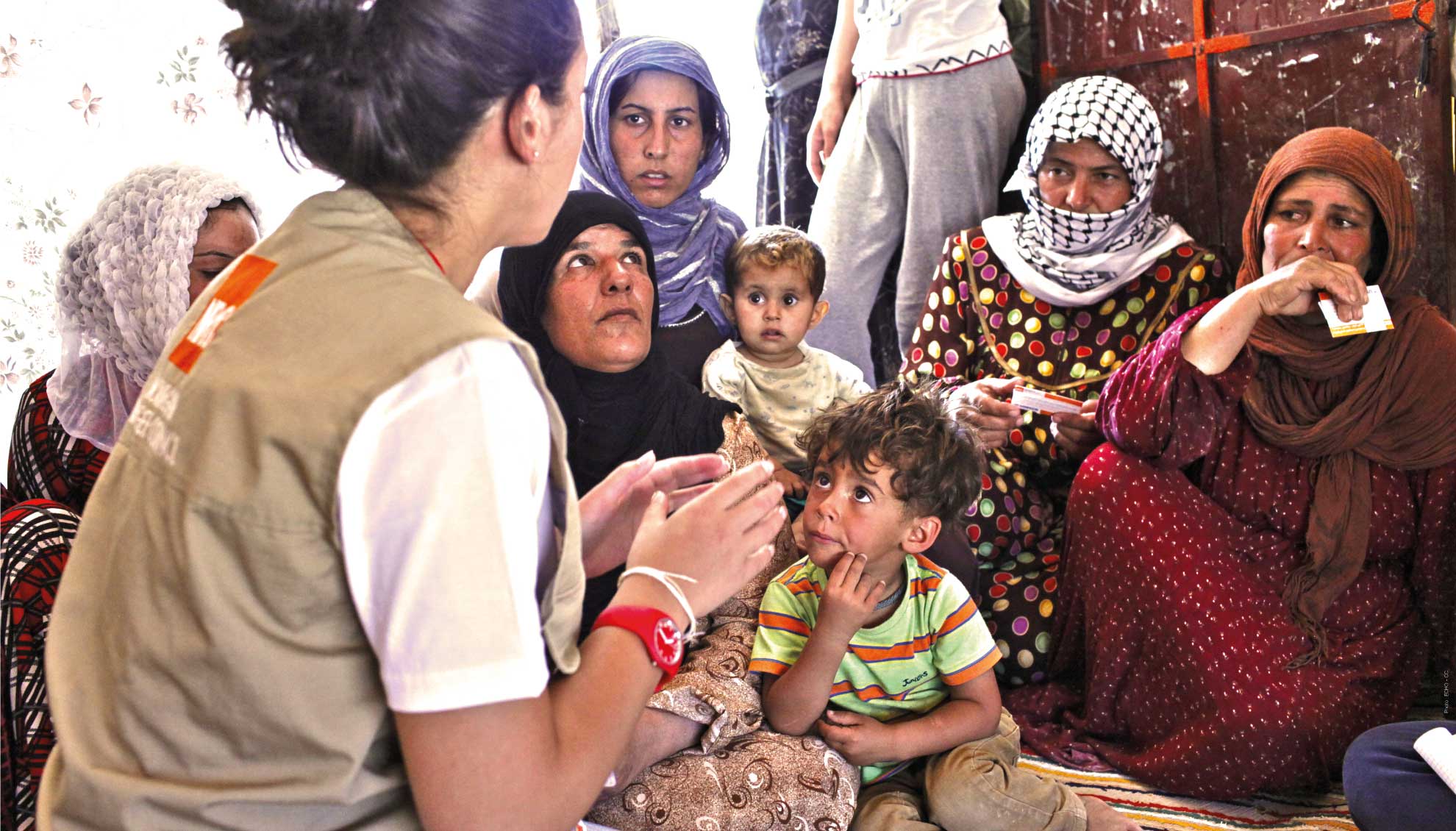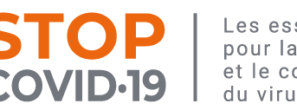“Whether the course is run online or on-site, the most important thing is that the quality of teaching remains the same as previous years and that the diploma holds the same value. That was on everyone’s mind, and we were reassured at length about this point.”

2020: adapting and responding to the covid-19 crisis
In our centres in Lyon and Dakar, in our projects in the Central African Republic, on our territory or online: in 2020, we first adapted to mitigate the impact of the crisis on our students, then quickly mobilised our know-how to help manage this global crisis.
Adapting to the crisis: a record shift in our training centres
On Thursday 12th March 2020, the President of the French Republic announced the closure of educational establishments. Two days later, an identical measure was taken by the President of Senegal. On Tuesday 17th March, all the roughly 300 students in the Europe and Africa centres shifted to remote learning: an e-learning platform was made operational for each group, the trainers, who change week on week, were briefed on how to use it and worked relentlessly to tailor their teaching and content, a hotline was set up to deal with questions and manage the inevitable technical glitches. A few weeks on, even our ‘field practice’ (full-scale humanitarian simulation operations) was conducted online.
In July, then again in September, the students were able to come back to the centres, which had been adjusted to comply with the new health order. In Lyon, at the end of October, everything came to a half once again with the announcement of a new lockdown, however guidelines from the Department of Labour quickly enabled students to return in person ‘if the course cannot be delivered online’ (requiring access to technical equipment, tools or machinery) and to reduce the drop-out risk.
The partial return to on-site teaching was a huge relief to everyone: “Over the first few months of the course, online, I did everything possible to make sure I didn’t drop out, but it’s hard to stay focussed on your screen seven hours a day.” (Guillaume, training to become a logistics manager), “The quality of the e-learning courses was good, but that doesn’t replace the need to see our trainers in person.” (Laura, studying to become a manager in Humanitarian Logistics & Facility Management). All the students fitted in with the exceptional circumstances and were aware of the efforts made by the teaching teams, that remained attentive to suggestions and feedback given by the students.
“Whether the course is run online or on-site, the most important thing is that the quality of teaching remains the same as previous years and that the diploma holds the same value. That was on everyone’s mind, and we were reassured at length about this point.” (Benoît, studying to become a Humanitarian Logistics Manager). The feedback from the students’ end-of-year assessments served to confirm that e-learning did not have a negative impact.

Responding to the crisis
Back in March 2020, both in France and in the countries where we operate, all the teams stepped up their efforts to offer support and capacity building to front-line workers. In Bangui, for example, they circulated basic prevention and protection messages within communities and distributed long-awaited masks.
Response #1: Stop Covid-19 made available in 3 weeks
- A free, self-learning, online course for crisis response operators
- Launched on 9th April, in French, English and Arabic
- Published on our website as well as reference websites, and made available to local and international partners
- 286.007 pages viewed (French), 29.846 pages viewed (English), 14.868 pages viewed (Arabic)
- With the support of the Greater Lyon
Bioforce has an important part to play in crisis management
“At the start of the epidemic in France, says Rory Downham, director of Learning & Development, it came to our attention that there was a lack of information and awareness raising tools to support people working on health prevention in French-speaking communities in Africa.
The biggest problems at that time were misinformation and fake news. Publications in English were being circulated, but they weren’t accessible as such for those operating in the field. As we work a lot with French-speaking communities, it was our duty to fulfil this need. So, we worked on a tool in French initially, after which came an English and Arabic version thanks to support from our partners Action Against Hunger and Oxfam. It took us nine days to create Stop Covid-19 in French, a record for online training courses, which can often take two months to get off the ground!
The main challenge lay in creating a tool using non-specialised language, conveying a moderate message (voiced in the conditional), which was quick to complete (maximum 2-3 hours) and accessible to as many people as possible online. It even needed to be downloadable for those working in the field with patchy internet. On 9th April, Stop Covid-19 was made available free of charge on our website and on two reference platforms, Kaya and Disaster Ready, offering the possibility for people to obtain a course completion certificate, as well as an HPass digital badge.
We received a lot of positive feedback on social networks, yet it was our partners and clusters who were the most vocal. They all noted that it addressed a real need in terms of information and training for the teams and appreciated the practical content. We know it did the rounds of the teams. The takeaway from this is that we were very responsive. Bioforce has an important part to play in crisis management, not least by designing this type of online course to support those on the front line.”
Response #2: Our projects in CAR
- Training for outreach representatives: 630 members of the Maison des Services
- Development of awareness-raising tools: comic books, videos
- Distribution of 100,000 hand-made masks and 200 Covid-19 kits by our partner, the Maison des Services
- With the support of the EU Trust Fund for the Central African Republic “Bêkou”.
In the Central African Republic, the first confirmed case of Covid-19 was registered on 14th March. It soon became vital to slow down the spread of the virus, whatever it took. With operations in the country since 2018, Bioforce adapted its response to this new reality as early as April 2020 by working with our partner civil society organisations on a project to disseminate key prevention messages.
Very quickly, the Bioforce teams were ready to get going on training our pool of Central African trainers, who were themselves then responsible for training 630 members of partner civil society organisations in running prevention sessions. As strategic community representatives, they were then able to mobilise more broadly in their operational area, their local district as well as among members and communities. Equipped with awareness-raising tools (including a specifically designed comic book created by a Central African cartoonist, Franky Kassai) as well as hand-sanitising kits, they focused their work on hygiene measures, best practice, challenging myths and false rumours, and fighting discrimination. Indeed, particular attention was given to fighting the discrimination and stigmatisation of people suffering from the virus, in order to forestall the rise in protection incidents.
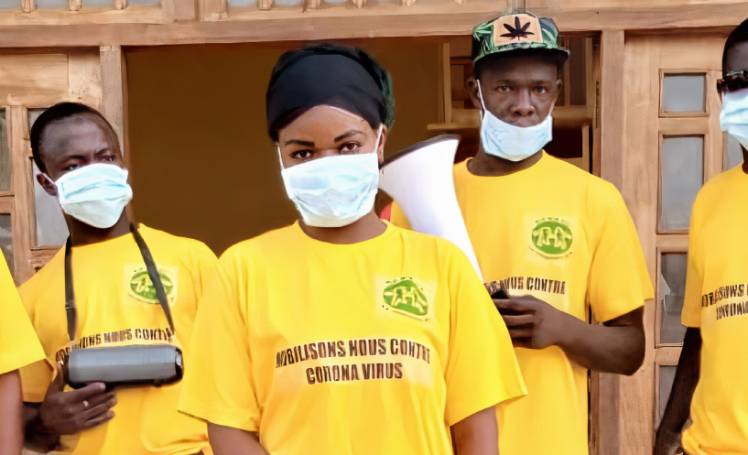
After being trained, they will all raise awareness in their communities
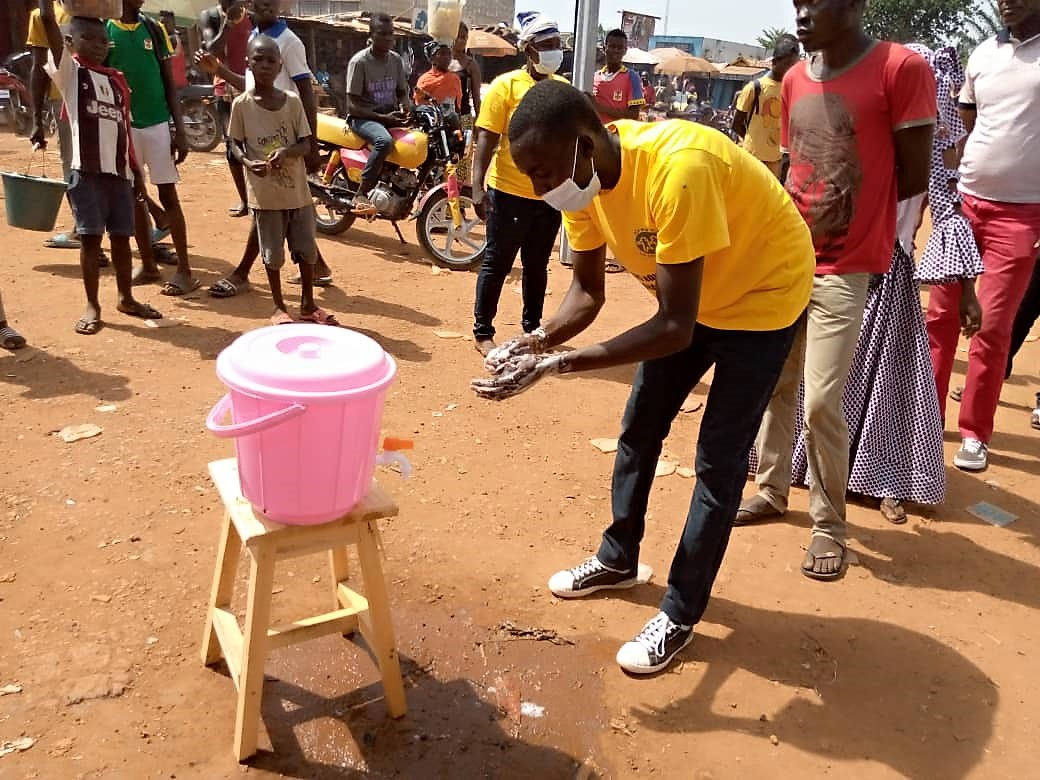
In Bangui, responding to covid-19 involves handwashing awareness and training
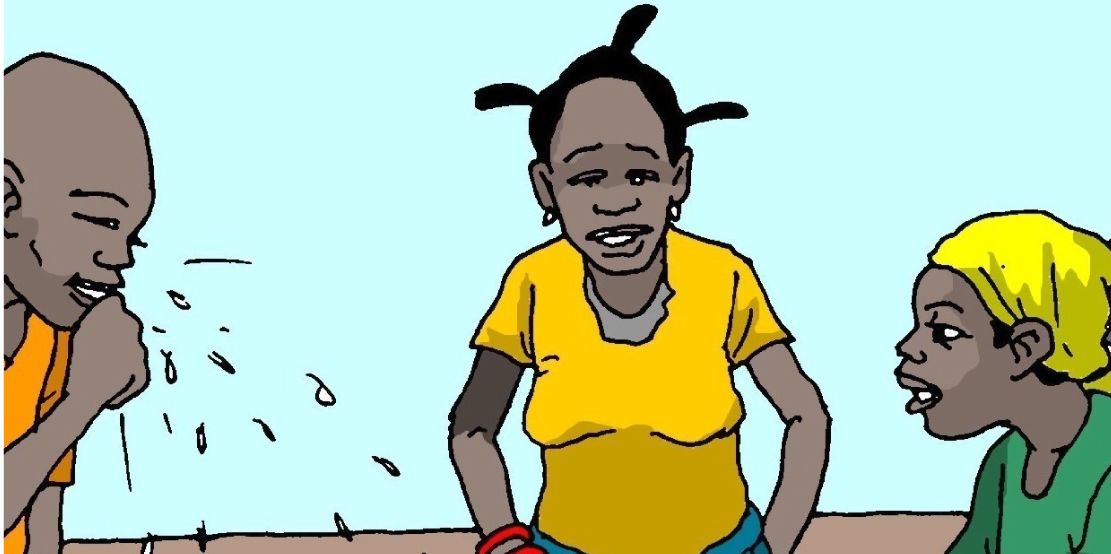
Awareness-raising materials against Covid-19 designed by Franky Kassaï, Centrafrican illustrator
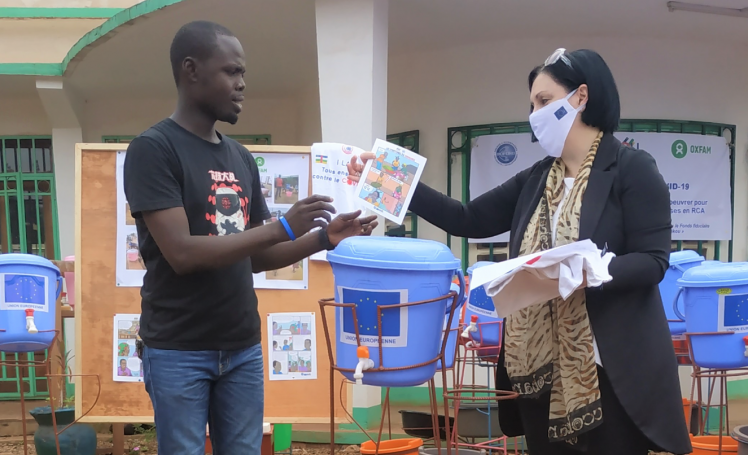
Distribution of awareness-raising materials against Covid-19 by the EU Ambassador to CAR, Samuela Isopi.
Response #3: Back in France
Helping social emergency responders in Greater Lyon assist the most vulnerable populations:
- Registering partners’ immediate requirements and providing equipment and/or services to address these (for example, a water point set up for the French Red Cross)
- Mobilising 46 volunteer students, 25 of whom to offer regular support (outreach, logistics support, food distribution and psychological support) for the French Red Cross, Forum Réfugiés, Restos du Coeur and Médecins du Monde
- Sharing our self-training tool, Stop Covid-19
- 15 solidarity projects by diploma course students out of the 33 selected
Helping the Auvergne-Rhône-Alpes regional authorities distribute masks:
- Over three months (end of March to end of June), three Bioforce graduates offered logistics coordination support to the DHL Lyon Satolas platform, with assistance from our Logistics and Supply Chain learning & development experts
- 2,500 dispatch slips throughout the Auvergne-Rhône-Alpes region
- 14 million surgical masks and 4 million FFP2 masks; a total of 18 million masks.
In March 2020, in the midst of the shortage, the Auvergne-Rhône-Alpes regional authorities ordered millions of masks, gloves and hand sanitizer for local healthcare centres, hospitals, the police force, taxi drivers and prison wardens. All these orders went through the DHL Satolas platform, as well as the Regional Council’s offices. In order to facilitate communications between the two, and ensure orders were
dispatched to the right places, the Regional Council called on Bioforce’s expertise: 3 volunteers, all Bioforce graduates, over 3 months’ work, 2,500 dispatch slips throughout the Auvergne-Rhône-Alpes region, 14 million surgical masks and 4 million FFP2 masks; a total of 18 million masks!
Personal stories
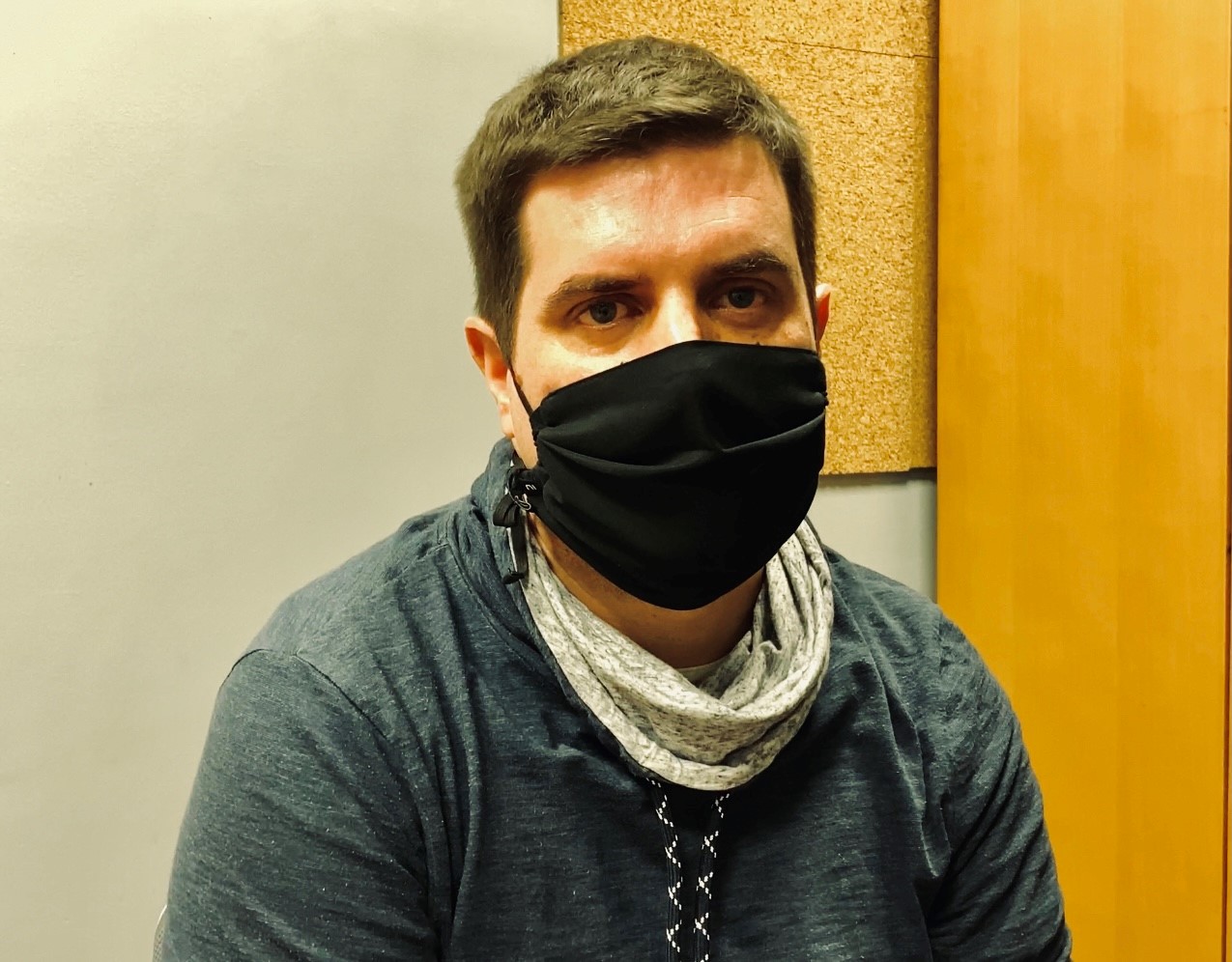
Benoît
Student
Humanitarian Logistics Manager

